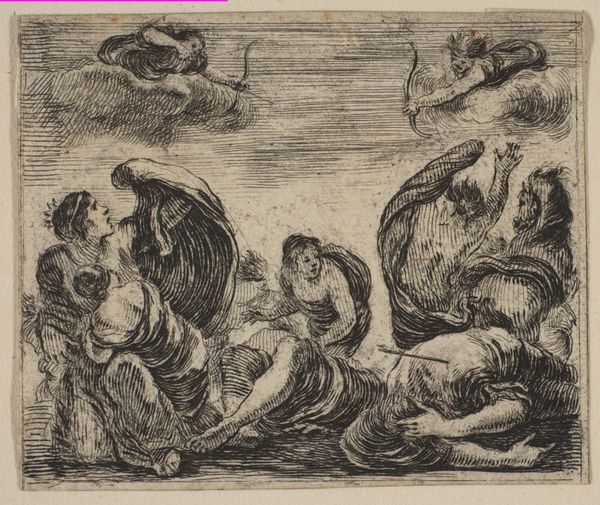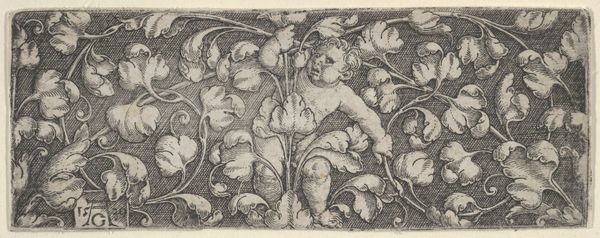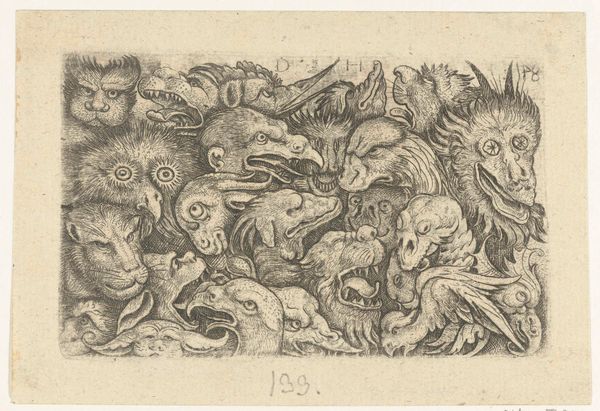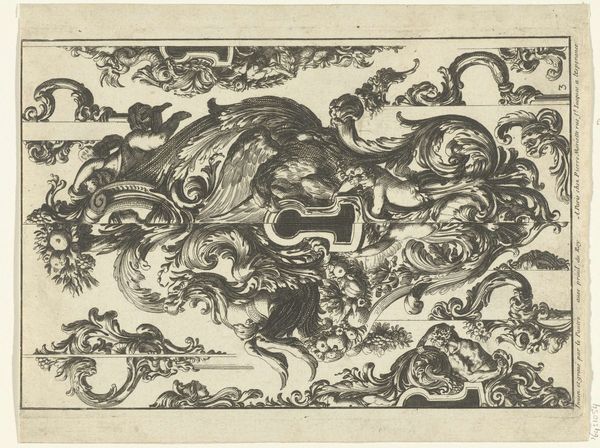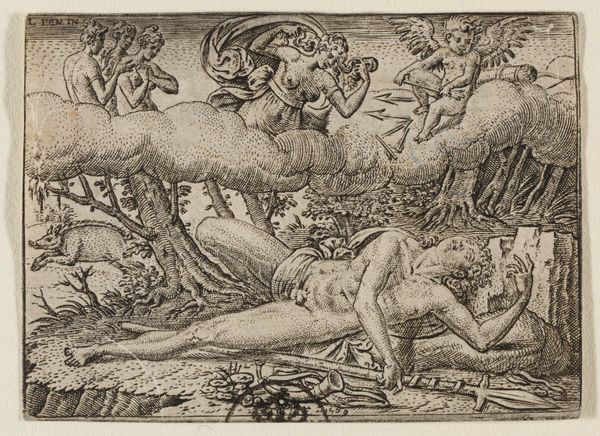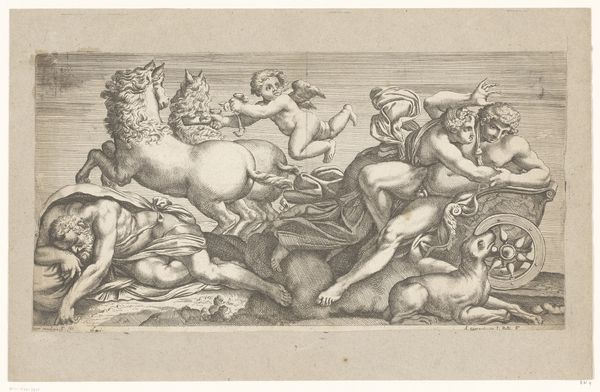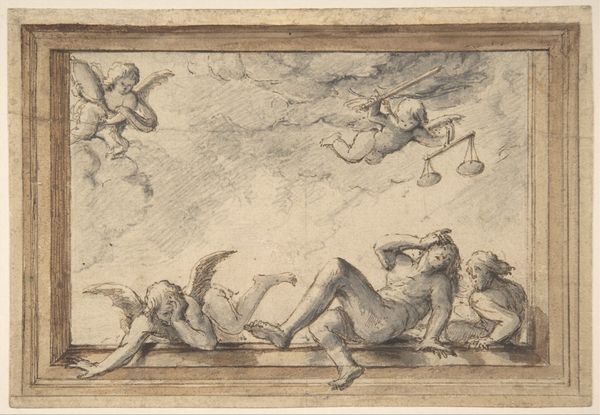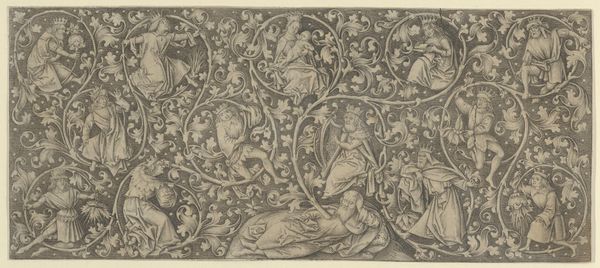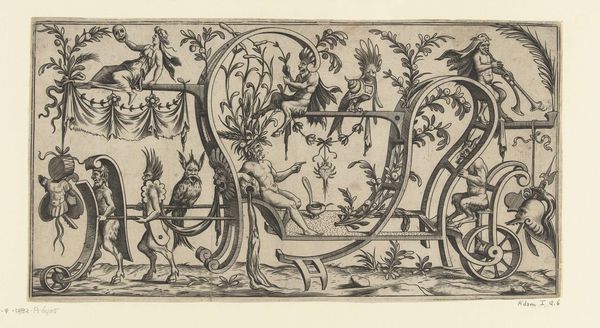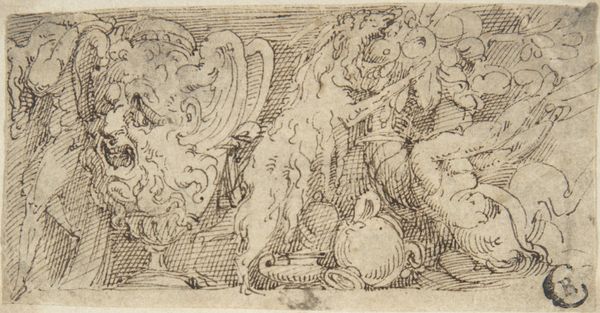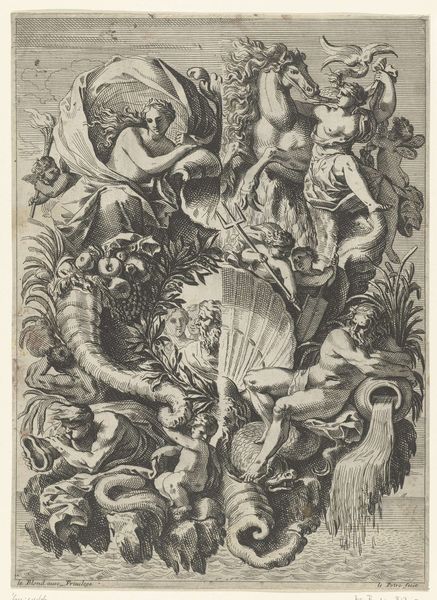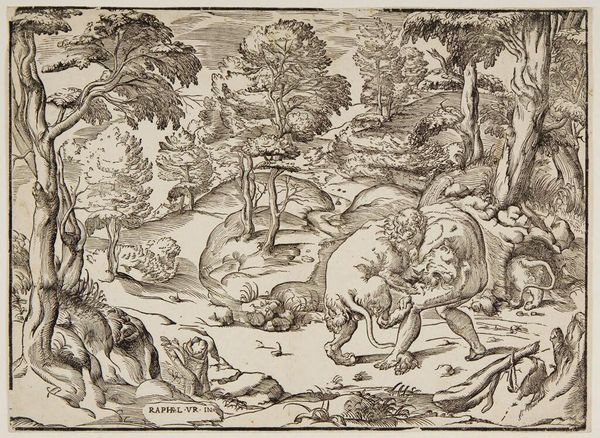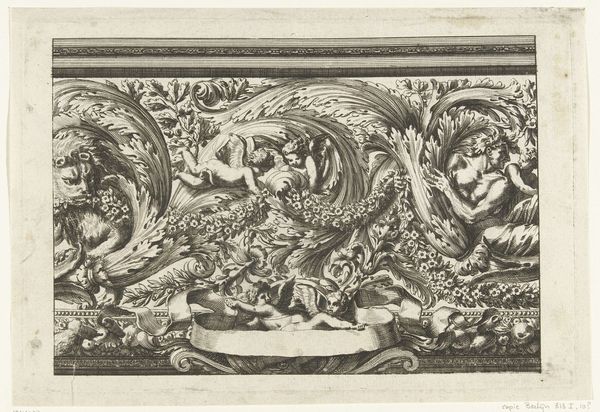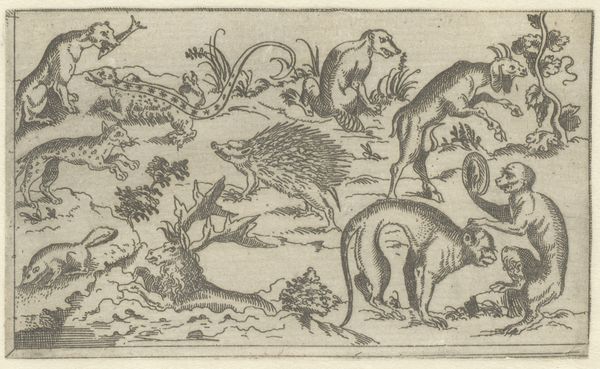
drawing, print, engraving
#
drawing
#
animal
# print
#
pencil sketch
#
pencil drawing
#
northern-renaissance
#
engraving
Dimensions: height 33 mm, width 61 mm
Copyright: Rijks Museum: Open Domain
Editor: This is "Two-Headed Toad or Frog and Other Animals," an engraving made in 1594 by Nicolaes de Bruyn. It's teeming with creatures, a rather strange, unsettling menagerie. What strikes you about this piece? Curator: What I find fascinating is how these types of prints, readily accessible through the burgeoning print market of the time, served to disseminate ideas and cultural anxieties. We're looking at a bestiary, a collection of animals, but these weren’t just scientific illustrations. How do you think the public perceived these animals? Editor: I suppose they didn’t have the same scientific understanding of these animals that we do today, so these images might have represented symbolic ideas? Curator: Precisely. Consider the two-headed frog. Such anomalies were often interpreted as omens, signs of societal disruption, reflecting a period rife with religious conflict and political instability. De Bruyn’s choice to depict this unusual creature front and center then… What does that say to you? Editor: That the artist might have been deliberately tapping into this sense of unease… suggesting something is deeply wrong or unnatural within society? And that message would be easily multiplied and disseminated? Curator: Exactly. Prints such as this held power, a public power to visualize fears and concerns. Do you see parallels with today's visual culture? Editor: That's true! News spreads rapidly, with images carrying symbolic weight and tapping into current anxieties. This makes me appreciate the historical and cultural significance of even seemingly simple prints. Curator: And that’s why studying these seemingly strange images can teach us so much about ourselves.
Comments
No comments
Be the first to comment and join the conversation on the ultimate creative platform.
